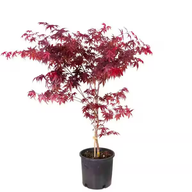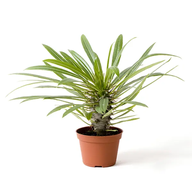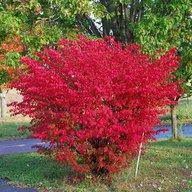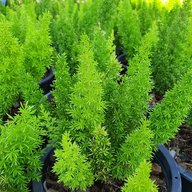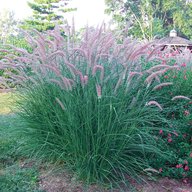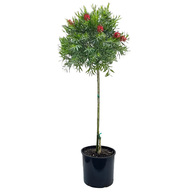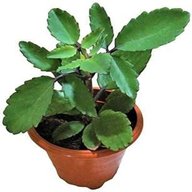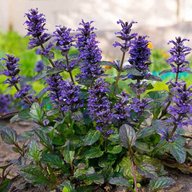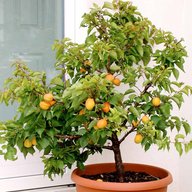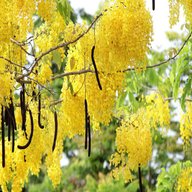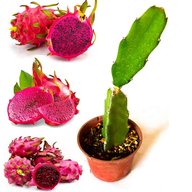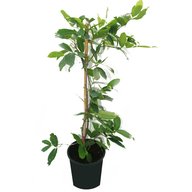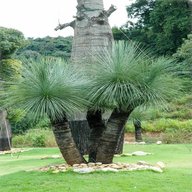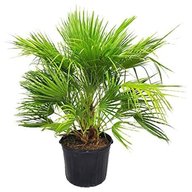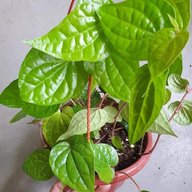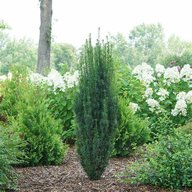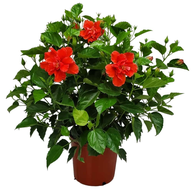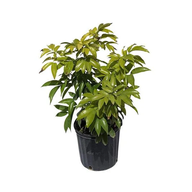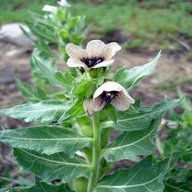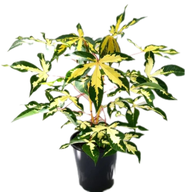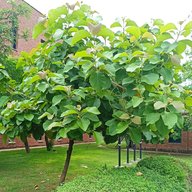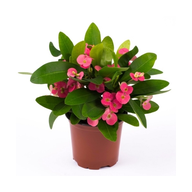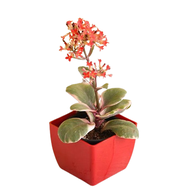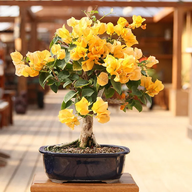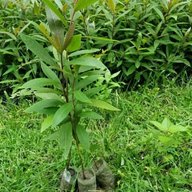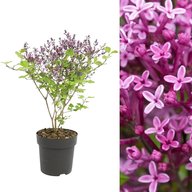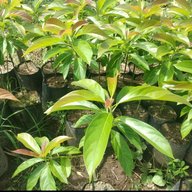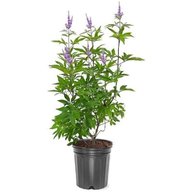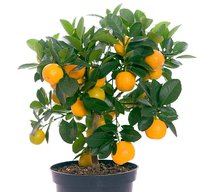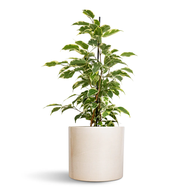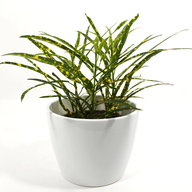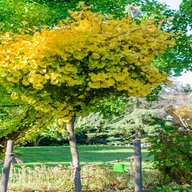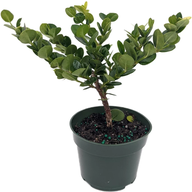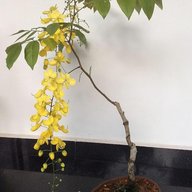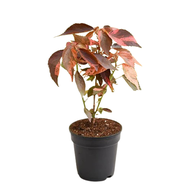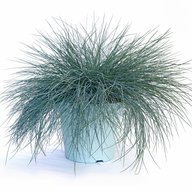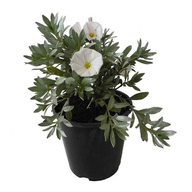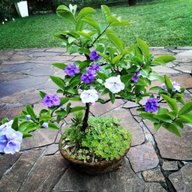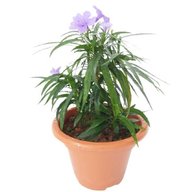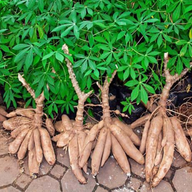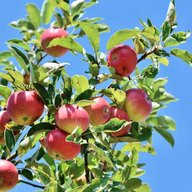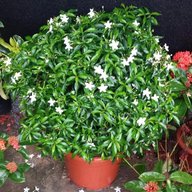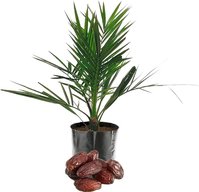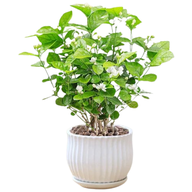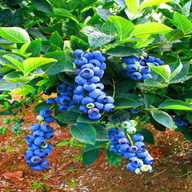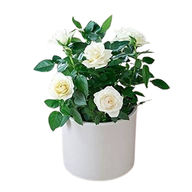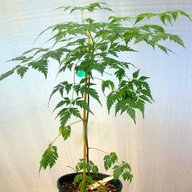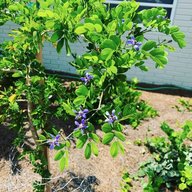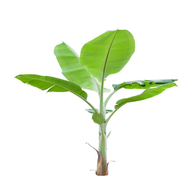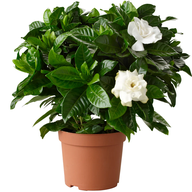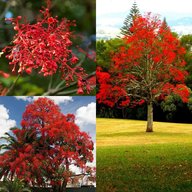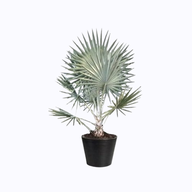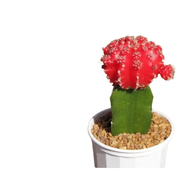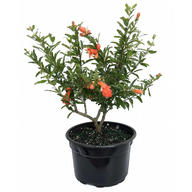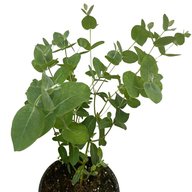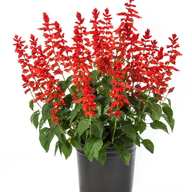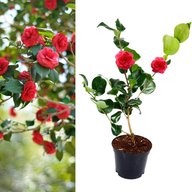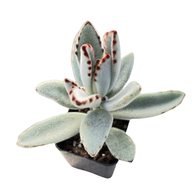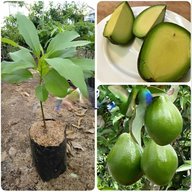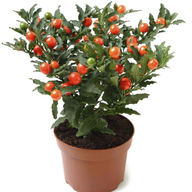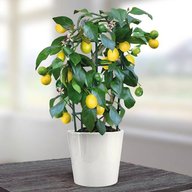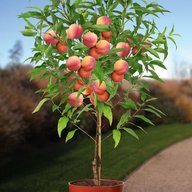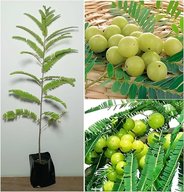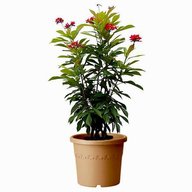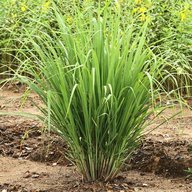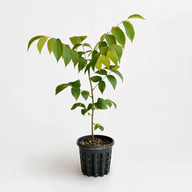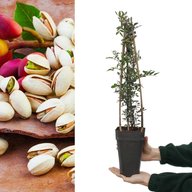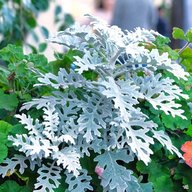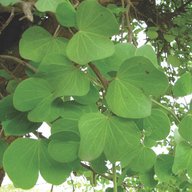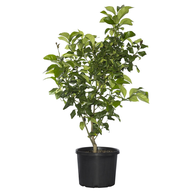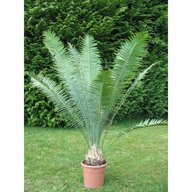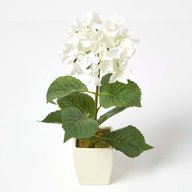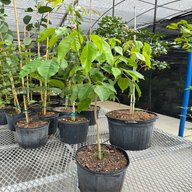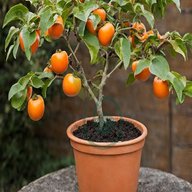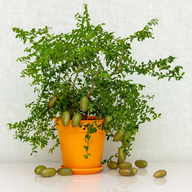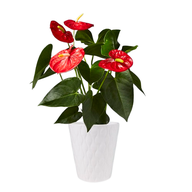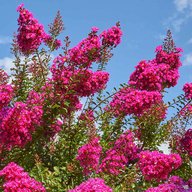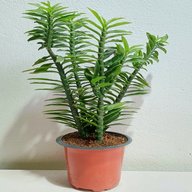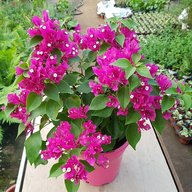Asparagus Grass (Asparagus Sprengeri)
Asparagus Grass, also known as Asparagus Sprengeri, Aspara Grass, Spara Grass, Sparrow Grass, or the Clean Air Plant, is a versatile and attractive addition to any home or garden. Known for its delicate, feathery foliage, this hardy plant is both decorative and functional. Its lush, green leaves cascade gracefully, making it perfect for hanging baskets, containers, or as ground cover in your garden.
Key Features:
- Aesthetic Appeal: The fine, airy foliage of Asparagus Grass adds a soft, elegant touch to any space.
- Air Purification: Often referred to as the Clean Air Plant, it helps to filter and improve indoor air quality.
- Easy Care: This resilient plant thrives in a variety of conditions and requires minimal maintenance, making it ideal for both novice and experienced gardeners.
- Versatility: Suitable for indoor and outdoor settings, Asparagus Grass can be used in hanging baskets, as a ground cover, or even as an ornamental plant in garden beds.
Care Instructions:
- Light: Prefers bright, indirect light but can tolerate partial shade.
- Water: Keep the soil consistently moist, but not waterlogged. Water thoroughly when the top inch of soil feels dry.
- Temperature: Thrives in temperatures between 60-75°F (15-24°C).
- Soil: Use well-draining potting soil with good organic matter.
- Fertilization: Feed with a balanced liquid fertilizer every 4-6 weeks during the growing season.
Whether you're looking to enhance your indoor decor or add a touch of greenery to your outdoor garden, Asparagus Grass is a fantastic choice that combines beauty with the added benefit of cleaner air.
Terminalia-Arjun Tree
The Terminalia-Arjun Tree, scientifically known as Terminalia arjuna, is a majestic and fast-growing deciduous tree that is native to South and Southeast Asia. This tree is well-known for its beautiful, broad leaves and striking white to pale yellow flowers. It typically reaches a height of 60-80 feet and is often planted along roadsides, in parks, and near homes for its aesthetic appeal and shade.
Benefits:
- Heart Health: The bark of the Arjun Tree is renowned for its cardioprotective properties. It is used in traditional Ayurvedic medicine to treat cardiovascular conditions, improve heart function, and manage hypertension.
- Antioxidant Properties: The tree's bark contains powerful antioxidants that help combat oxidative stress, promoting overall health and wellness.
- Anti-inflammatory: Terminalia arjuna has anti-inflammatory properties, making it useful in reducing inflammation and pain associated with various conditions.
- Cholesterol Management: Regular use of Arjun Tree extracts can help lower LDL cholesterol levels and increase HDL cholesterol, contributing to better heart health.
- Wound Healing: The bark and leaves of the tree have antimicrobial properties that aid in the healing of wounds and prevention of infections.
- Liver Health: The tree's extracts are known to support liver health by enhancing liver function and protecting against liver damage.
- Natural Remedy: Used in traditional medicine for centuries, the Terminalia-Arjun Tree offers a natural remedy for various ailments without the side effects commonly associated with synthetic drugs.
- Environmental Benefits: As a fast-growing tree, it is excellent for reforestation projects and helps in controlling soil erosion. It also provides ample shade, improving the microclimate of its surroundings.
The Terminalia-Arjun Tree is not only a beautiful addition to any landscape but also a powerhouse of health benefits. Its versatility and medicinal properties make it a valuable tree for both environmental and health purposes. Planting this tree can enhance your surroundings while offering a range of natural health benefits.
Brachychiton acerifolius 'Illawarra Flame Tree'
The Brachychiton acerifolius, commonly known as the Illawarra Flame Tree, is a stunning deciduous tree native to Australia. Renowned for its spectacular display of bright red, bell-shaped flowers, this tree transforms any landscape into a vibrant, eye-catching scene. The Illawarra Flame Tree can reach heights of up to 40 feet, making it a majestic addition to any garden.
Key Features:
- Spectacular Blooms: The Illawarra Flame Tree is celebrated for its vivid red flowers that appear in late spring to early summer, creating a breathtaking floral display.
- Foliage: It features large, maple-like leaves that provide dense, green foliage for most of the year.
- Adaptability: This tree is well-suited to a variety of soil types and can thrive in both full sun and partial shade.
- Low Maintenance: It requires minimal care once established, making it ideal for both novice and experienced gardeners.
Care Instructions:
- Light: Prefers full sun to partial shade.
- Water: Needs regular watering, especially during dry periods, but is drought-tolerant once established.
- Soil: Thrives in well-draining soil with good organic content.
- Temperature: Can withstand a range of temperatures but prefers warm climates.
- Pruning: Prune occasionally to maintain shape and remove any dead or damaged branches.
- #IllawarraFlameTree
- #BrachychitonAcerifolius
- #FlameTree
- #FloweringTree
- #GardenBeauty
- #OrnamentalTree
- #VibrantBlooms
- #PakistaniGardening
- #LandscapeDesign
- #GardenPlants
- #OutdoorPlants
- #GreenLiving
- #TreeLovers
- #GardenInspiration
- #NatureInYourBackyard
Euphorbia Tithymaloides, commonly known as the "Redbird Cactus," "Devil's Backbone," or "Jewbush," is an interesting and attractive succulent plant. It belongs to the Euphorbiaceae family and is native to tropical and subtropical regions of the Americas, particularly from Florida to Central America and the Caribbean.
- Appearance:
- Stems: The plant features zigzagging, fleshy stems that grow in a unique, erratic pattern, resembling a spine or backbone.
- Leaves: Leaves are small, oval, and dark green, growing alternately along the stems.
- Flowers: The flowers are tiny, tubular, and usually bright red or pink, growing in clusters at the tips of the stems. The flowers often attract hummingbirds and other pollinators.
- Height: Euphorbia tithymaloides can grow up to 6-8 feet tall in its native habitat, but typically remains smaller when grown indoors or in containers.
Care Tips:
Light:
- Indoors: Place the plant in a bright, sunny location. It prefers full sun but can tolerate partial shade.
- Outdoors: Ideal for a spot that gets plenty of sunlight. It can handle some afternoon shade, especially in hotter climates.
Watering:
- Water thoroughly when the top inch of soil feels dry. Allow the soil to dry out between waterings.
- Reduce watering frequency in the winter months when the plant's growth slows down.
- Be cautious of overwatering, as this can lead to root rot.
Soil:
- Use a well-draining soil mix, such as a cactus or succulent potting mix.
- Ensure the pot has drainage holes to prevent water from accumulating at the bottom.
Temperature:
- Prefers warm temperatures, ideally between 65°F and 80°F (18°C - 27°C).
- Protect the plant from cold drafts and temperatures below 50°F (10°C).
Humidity:
- Tolerates a wide range of humidity levels but thrives in average household humidity.
- No need for special humidity adjustments.
Fertilization:
- Feed with a balanced, water-soluble fertilizer diluted to half strength once a month during the growing season (spring and summer).
- No need to fertilize during the winter months.
Pruning:
- Prune to control the size and shape of the plant. Remove any dead or damaged stems.
- Wear gloves when handling the plant, as the sap can be irritating to the skin.
Propagation:
- Easily propagated through stem cuttings. Allow the cut ends to callous over for a few days before planting them in well-draining soil.
- Keep the soil lightly moist until the cuttings establish roots.
Pests and Problems:
- Generally resistant to pests but can occasionally attract mealybugs, aphids, or spider mites. Treat infestations with insecticidal soap or neem oil.
- Watch out for signs of overwatering, such as yellowing leaves or soft stems.
Safety:
- The sap of Euphorbia tithymaloides is toxic if ingested and can cause skin irritation. Keep away from pets and children.
By following these care tips, your Euphorbia tithymaloides can thrive and add a unique, architectural interest to your indoor or outdoor plant collection.
#Euphorbia tithymaloides #Devil's BackbonePlant #Succulent #Indoor Plants Pakistan #OutdoorGardensPakistan #LowMaintenancePlants #Exotic Plants Pakistan #Architectural Plants #Zigzagging Stems #Crisscross Pattern #Drought Tolerant Plants #Bright Green Leaves #Ornamental Plants Pakistan #Houseplants Pakistan
